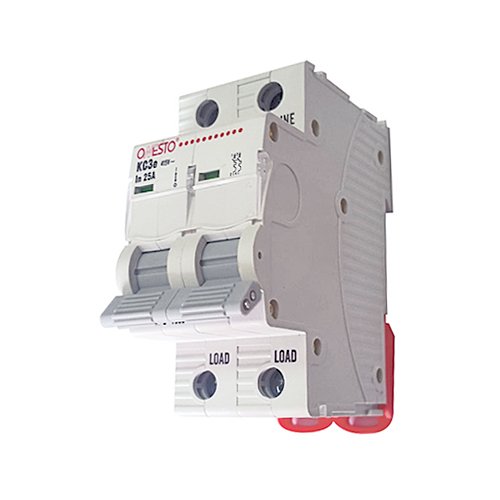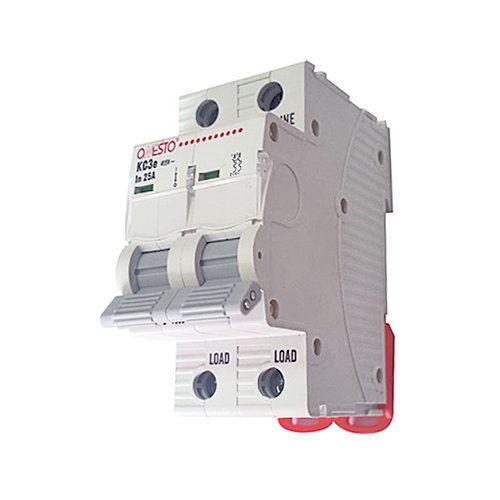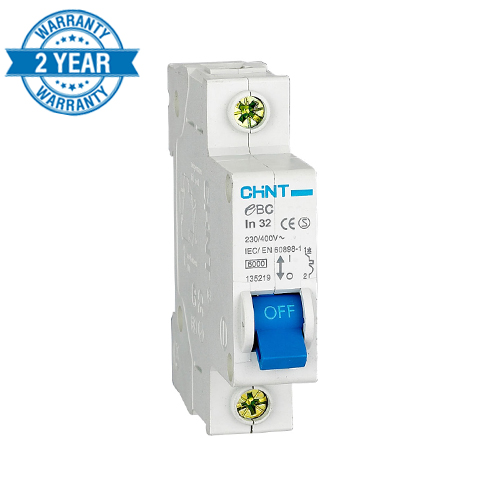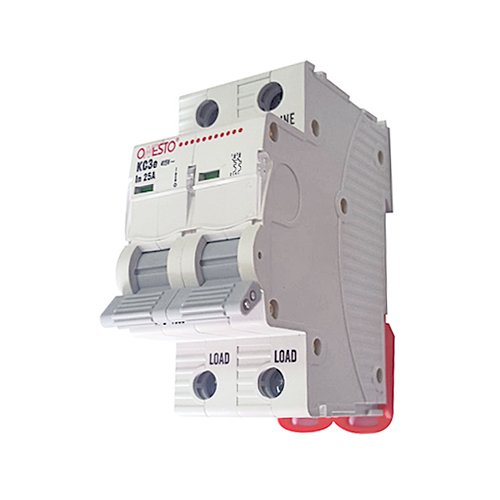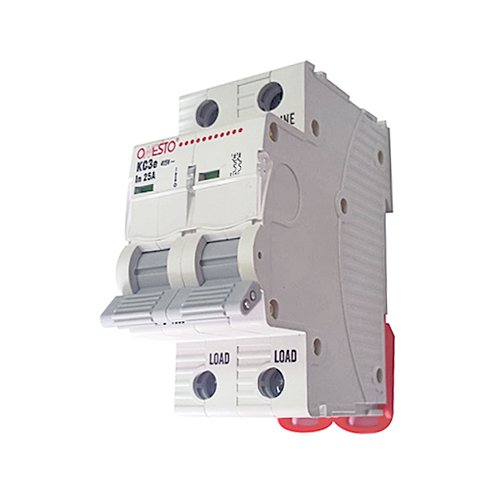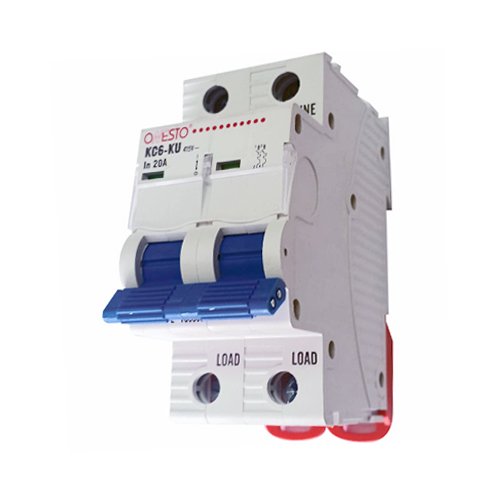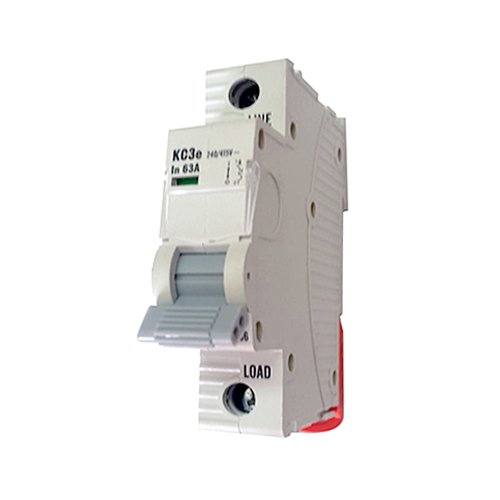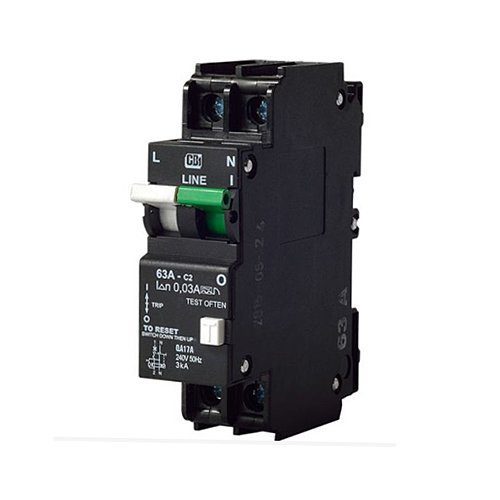Earth Leakage vs Circuit Breaker – Do You Need Both?
Why Protection Devices Matter
In South Africa, household and commercial electrical systems must meet strict safety requirements. Two of the most important protection devices are the earth leakage unit and the circuit breaker.
Although they are often confused, these devices perform very different roles. To ensure your installation is safe, compliant with SANS 10142, and covered by insurance, it is important to understand the difference.
What is a Circuit Breaker?
A circuit breaker is designed to protect electrical wiring and equipment from overload and short circuits.
-
Trips when a circuit draws more current than it should
-
Prevents overheating of wires and fire hazards
-
Protects appliances from damage caused by excessive current
-
Commonly found in every DB board in South African homes and businesses
Circuit breakers are sized according to the cable and load they protect. For example, a lighting circuit may use a 10A breaker, while a stove circuit may use a 32A breaker.
What is an Earth Leakage Unit?
An earth leakage device protects people rather than equipment.
-
Trips when electricity flows to earth (leakage current) instead of staying in the circuit
-
Detects faults caused by damaged insulation, water contact, or accidental contact with live wires
-
Prevents electrocution by disconnecting power quickly
-
Standard sensitivity is 30mA for household use
Earth leakage units reduce the risk of fatal electric shock.
Key Differences Between Earth Leakage and Circuit Breaker
-
Function: Circuit breakers protect equipment; earth leakage protects people
-
Trip conditions: Breakers trip on overloads and short circuits; earth leakage trips on current leakage to earth
-
Measurement: Breakers measure current in amps; earth leakage measures leakage in milliamps
-
Necessity: Breakers are always required; earth leakage is required in most household circuits
Why You Need Both
Some homeowners assume one device can replace the other, but this is not true.
-
A circuit breaker will not trip if electricity leaks through a person to earth, unless the current exceeds the breaker’s rating
-
An earth leakage device will not protect against an overloaded appliance or short circuit
Together, they provide complete protection for both people and property.
South African Requirements
According to SANS 10142:
-
All socket outlet circuits must be protected by earth leakage
-
Certain circuits, such as lighting and fixed appliances, may not require earth leakage but must still have breakers
-
Geysers, stoves, and similar circuits require dedicated breakers sized for the load
-
All installations must be signed off with a valid Certificate of Compliance (CoC)
Common Mistakes to Avoid
-
Believing a circuit breaker protects against electric shock
-
Omitting earth leakage from plug circuits
-
Oversizing breakers compared to cable size
-
Attempting DIY installation without professional sign-off
-
Failing to test earth leakage units regularly (recommended every 6 months)
FAQs
Do I need both earth leakage and circuit breakers?
Yes. Breakers protect equipment, earth leakage protects people. Both are required.
How often should I test my earth leakage?
At least every 6 months using the test button on the DB board.
Can I run lights without earth leakage?
Yes, certain circuits may be exempt, but plug circuits must always be on earth leakage.
Why does my earth leakage trip randomly?
Causes include faulty appliances, water ingress, or damaged wiring. A qualified electrician must investigate.
Is earth leakage required by law in South Africa?
Yes. SANS 10142 specifies where earth leakage protection is mandatory.
Buy Protection Devices Online with Lite-Glo
Lite-Glo stocks a full range of AC and DC circuit breakers, earth leakage units, surge protectors, and distribution boards. Whether for residential or commercial projects, we supply safe, compliant equipment trusted by electricians across South Africa.
Shop Circuit Breakers
Shop Earth Leakage
⚠️ Safety & Compliance Notice
All electrical installations in South Africa must comply with SANS 10142-1 (Wiring Code) and the Occupational Health & Safety Act. Work must be carried out by a qualified, registered electrician.
This article is for general educational purposes only. It does not replace professional advice, and Lite-Glo accepts no liability for how this information is used. Always obtain a valid Certificate of Compliance (CoC) for any electrical work.
Need Assistance?
📧 onlinesales@liteglo.co.za
📞 011 781 3100
💬 WhatsApp: 060 322 9674







